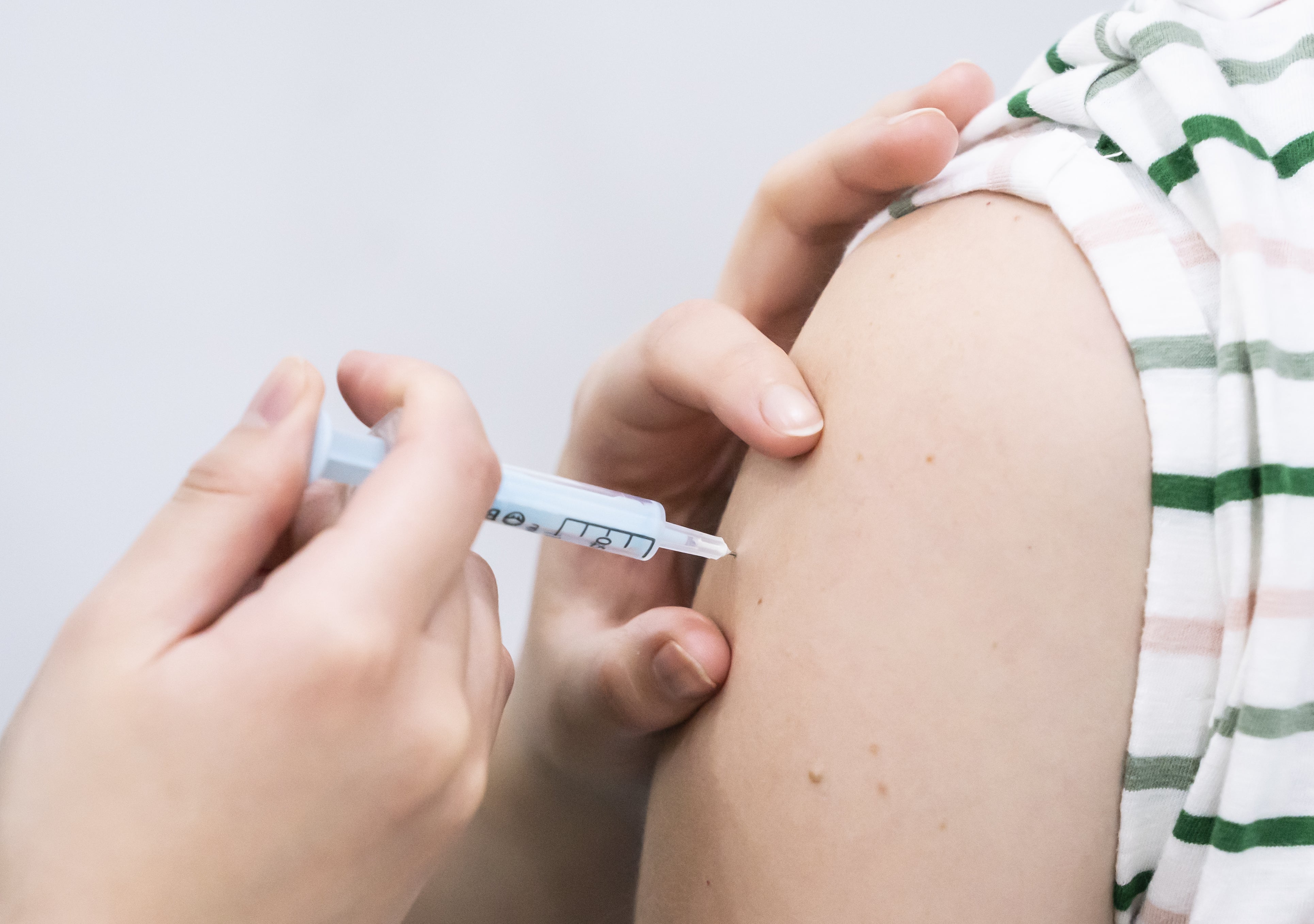Third Covid-19 vaccine dose offers ‘prolonged immune response’ – UK-wide study
The study compared immune responses to seven vaccines used as a booster 28 days after two initial doses.

Your support helps us to tell the story
From reproductive rights to climate change to Big Tech, The Independent is on the ground when the story is developing. Whether it's investigating the financials of Elon Musk's pro-Trump PAC or producing our latest documentary, 'The A Word', which shines a light on the American women fighting for reproductive rights, we know how important it is to parse out the facts from the messaging.
At such a critical moment in US history, we need reporters on the ground. Your donation allows us to keep sending journalists to speak to both sides of the story.
The Independent is trusted by Americans across the entire political spectrum. And unlike many other quality news outlets, we choose not to lock Americans out of our reporting and analysis with paywalls. We believe quality journalism should be available to everyone, paid for by those who can afford it.
Your support makes all the difference.A UK-wide study has found a prolonged immune response from third doses of Covid-19 vaccines.
The Cov-Boost study, led by the University Hospital Southampton (UHS), compared immune responses to seven vaccines used as a booster 28 days after participants had received two initial doses of either the AstraZeneca or Pfizer vaccines.
The latest findings, published online in the Journal of Infection, show “strong immune responses” are still seen 84 days after third jabs, with five of the Covid-19 vaccines currently approved for use in the UK (AstraZeneca, Pfizer, Moderna, Janssen and Novavax vaccines).
Of these vaccines, only three – Pfizer, Moderna and AstraZeneca – have been used in the UK booster programme.
Of the 2,883 people taking part aged between 30 and 94, 2,422 had no SARS-CoV-2 infection through to their day 84 visit.
In those who had two initial doses of AstraZeneca, the Pfizer and Moderna mRNA vaccines given as a third dose gave the highest anti-spike antibodies at day 84.
However, in people who had two initial doses of Pfizer there was no significant difference at day 84 between those given a third jab of AstraZeneca or Pfizer.
Those given Janssen’s jab as a third dose after two doses of Pfizer showed an even stronger anti-spike antibody response at day 84.
Responses to a half (15 μg) or full (30 μg) dose of Pfizer were similar in both those who had AstraZeneca or Pfizer initial doses.
We also found that a half dose of the Pfizer vaccine gives similar responses as a full dose at three months, which could help in planning global vaccine supply and delivery
A UHS spokeswoman said: “Critically, the rate that immune cell responses declined after third doses was similar between all the vaccine combinations and doses.”
Saul Faust, a professor of paediatric immunology and infectious diseases at the University of Southampton and trial lead and director of the NIHR Southampton Clinical Research Facility, said: “What Cov-Boost has shown is that most of the currently approved vaccines drive persistent protection when used as a third dose.
“That gives countries worldwide confidence in the value of booster programmes – and flexibility in delivering them.
“Although very high antibody levels may be useful to control a new variant spreading in society in the first few weeks after a booster jab, the longer-term protection against hospitalisation and death is perhaps the most important factor for future booster programmes.
“We also found that a half dose of the Pfizer vaccine gives similar responses as a full dose at three months, which could help in planning global vaccine supply and delivery.”